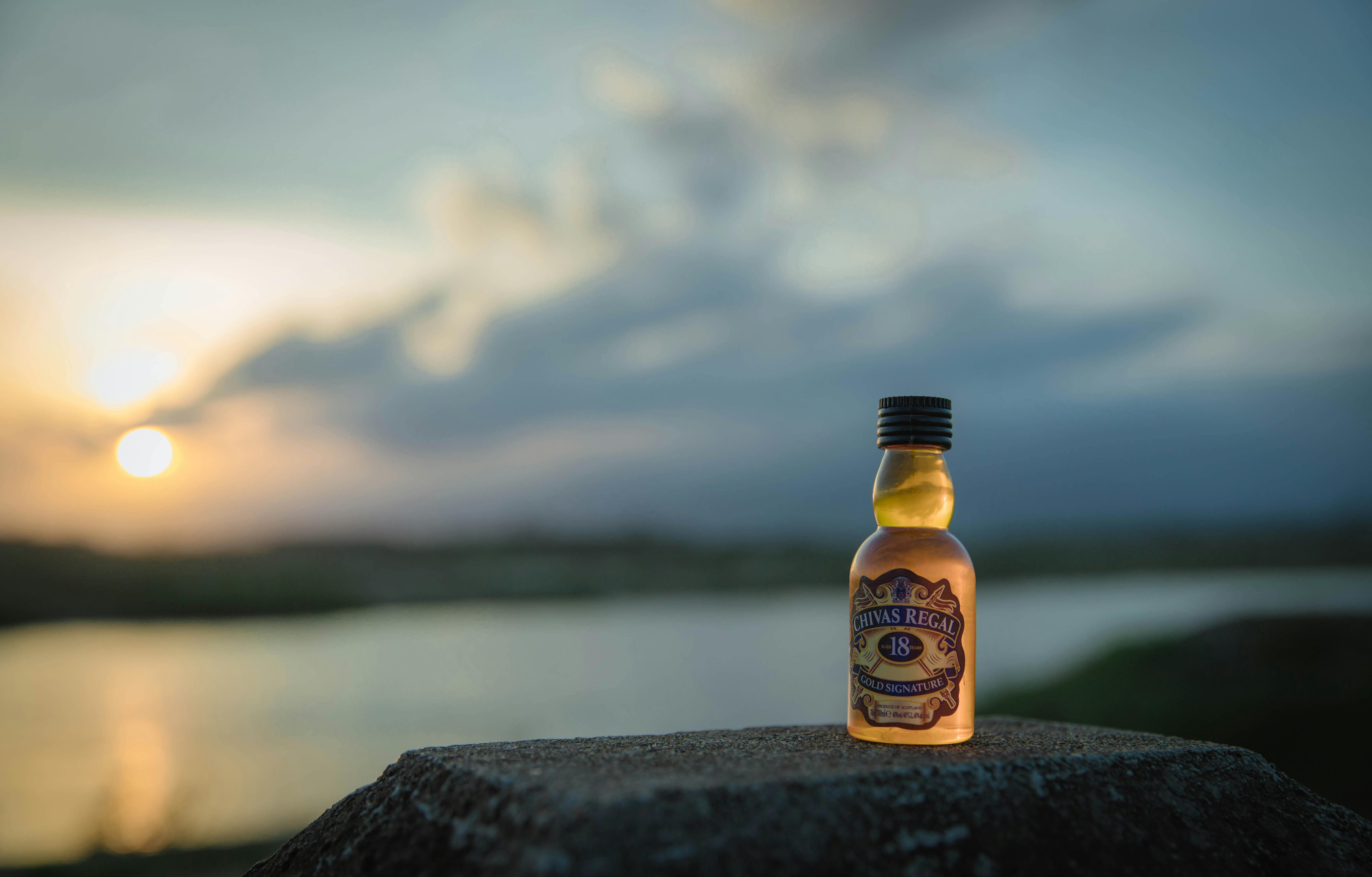Bottled water is a popular choice for those who want to stay hydrated on the go. But is bottled water considered distilled water? The answer depends on what type of bottled water you’re drinking. Distilled water is purified by boiling it and then condensing the steam, removing minerals and contaminants from the liquid. Many brands of bottled water contain minerals, so they are not considered distilled water. However, some brands specifically market themselves as distilled, so it’s important to read the label before purchasing.Bottled water is water that has been packaged into plastic or glass bottles for human consumption. It is a popular beverage choice due to its convenience and often contains minerals that may be beneficial to health. Bottled water may be either still (non-carbonated) or carbonated, and can come in a variety of sizes and flavors.
What is Distilled Water?
Distilled water is a type of water that has been purified through a process of distillation. This process involves boiling the water and then condensing the steam back into a liquid. The impurities that were in the original source of water are left behind, leaving only pure, clean drinking water. Distillation removes both solid particles and dissolved minerals from the water, making it safer to drink than untreated tap or spring water. It’s also more pleasant tasting than untreated water because it has been stripped of its mineral content. Distilled water is commonly used for medical purposes, such as for IV solutions or in humidifiers, and also for industrial applications like car batteries and laundry machines. It can also be used as drinking water if desired.
Distilled water is often preferred over tap or spring water because it does not contain any of the contaminants that can be found in these sources. This includes chlorine, lead, bacteria, viruses, and other pollutants that can be found in untreated sources of drinking water. Many people choose to use distilled water for cooking or drinking because they believe it has fewer health risks associated with it than other types of drinking water. Bottled water is often advertised as being “pure” or “purified”, but what exactly does this mean? In most cases, bottled water is simply tap water that has gone through some sort of filtration or purification process. The most common form of purification for bottled water is reverse osmosis, which removes contaminants from the water using a specialized filtering system. Many brands also use ultraviolet light to kill bacteria, and other forms of filtration such as carbon filters may be used as well. However, it is important to remember that not all bottled water is the same. While some brands may be highly purified and tested for contaminants, others may contain more impurities than tap water. It is important to read labels carefully and understand what type of purification process was used on the bottle you are buying. Additionally, some states have stricter regulations regarding the quality of bottled water than others. In conclusion, while some bottled waters can be considered purified or pure, it is important to do your research and understand the type of filtration process used for The processes for producing bottled and distilled water are similar in some ways, but there are also important differences. Both bottled and distilled water are purified to remove impurities, such as bacteria and other contaminants. However, the processes used to purify each type of water vary significantly. Bottled water is typically purified through a filtration process that consists of multiple stages. The first stage is often a physical filtering process that physically removes particles from the water. After this, the water may go through a chemical filtering process that removes additional contaminants, such as chlorine and lead. Finally, the filtered water is tested for safety before it is sent to bottling facilities. Distilled water is produced by boiling raw water until it turns into steam. The steam is then collected in a separate chamber where it cools down and condenses into liquid form again. This condensed liquid form of distilled water contains very few contaminants because the boiling process eliminates impurities. Once the distilled water has been collected, it may be further filtered to remove any additional impurities that may have been missed during the boiling process. The taste of bottled and distilled water can differ depending on the source and filtration process used to create them. Bottled water typically has a milder taste since it is sourced from natural springs or other sources that are filtered for purity. The minerals in the water give it a unique flavor, which some people prefer over distilled water. Distilled water, on the other hand, has no minerals or trace elements because it has been boiled and condensed to remove all impurities. As a result, distilled water has a much blander taste than bottled water. When comparing the two types of waters, it can be difficult to determine which one tastes better as it mostly comes down to personal preference. Some people may find that they enjoy the crispness of distilled water more than the subtle flavor of bottled water, while others may prefer the unique taste of bottled water over distilled. In addition to taste preferences, there are many health benefits associated with each type of water. Bottled water contains trace minerals that can provide essential nutrients such as calcium and magnesium which are beneficial for maintaining optimal health. Distilled water is also beneficial because it does not contain The mineral content of bottled and distilled water can vary significantly. Bottled water typically contains minerals such as sodium, calcium, potassium, magnesium, and other trace elements. On the other hand, distilled water does not contain any minerals since it has been purified through distillation. Distillation is a process of purifying liquids through boiling and condensation. During this process, unwanted impurities and minerals are removed from the liquid. As a result, distilled water does not have any minerals because they have been removed during the distillation process. In comparison, bottled water is not purified through distillation. Therefore, it still contains some amount of minerals as well as other impurities that are filtered out during bottling. The amount of minerals in bottled water depends on the source of the water and how much it has been treated before being sold. Overall, bottled water typically contains more minerals than distilled water due to its lack of purification via distillation. It is important to note that both types of water can provide essential hydration for your body; however, if you are looking for certain beneficial Drinking bottled or distilled water has become increasingly popular over the years, and many people believe that it has certain health benefits. While there are some potential health benefits associated with drinking bottled or distilled water, there are also some potential risks. One potential benefit of drinking bottled or distilled water is that it is free from many of the contaminants and pollutants found in tap water. Tap water can contain chlorine, lead, pesticides, and other potentially harmful substances. By drinking bottled or distilled water, you can avoid these contaminants and reduce your exposure to these substances. Bottled and distilled water also often contain minerals like calcium and magnesium that can be beneficial for your health. Calcium is important for strong bones and teeth, while magnesium can help with muscle relaxation and nerve function. Some brands of bottled or distilled water may also contain electrolytes like sodium and potassium that can help to regulate fluid balance in the body. However, it’s important to keep in mind that there may be potential risks associated with drinking bottled or distilled water as well. Many brands of bottled or distilled water contain high levels Today, more people are turning to bottled or distilled water for their drinking needs due to concerns about water quality and safety. However, the production and consumption of bottled and distilled water has a significant environmental impact that should be considered. The plastic used to make these bottles is not biodegradable, meaning it can take hundreds of years to breakdown. This leads to a buildup of plastic waste in landfills and oceans, which can have catastrophic consequences for the environment. The production of bottled water also requires a great deal of energy. From the production of the plastic bottles themselves, to transporting them from factories to stores, significant amounts of energy are used that can contribute to climate change. Additionally, many bottled water companies source their water from natural springs or aquifers, which can cause further environmental damage if not properly managed. Finally, the cost associated with buying bottled or distilled water is much higher than simply drinking tap water. In addition to the cost of production and transport, companies must also pay for marketing campaigns in order to get people to buy their product. This cost is then passed on to consumers Bottled water is not necessarily considered distilled water, as it does not always go through the same purification process that is used to make distilled water. Bottled water can be sourced from many different sources, and its purity level can vary greatly depending on the source. Generally speaking, it is safe to drink bottled water, but it is important to read the label before consuming it. If you are looking for pure, distilled water, then purchasing a distiller is the best way to guarantee that your drinking water has been properly purified. In conclusion, bottled waters can vary in purity levels depending on its source and while it can be consumed safely, purchasing a distiller if you are looking for pure distilled water is the best option.Are the Processes for Producing Bottled and Distilled Water Similar?
Bottled vs Distilled Water

Is the Mineral Content in Bottled and Distilled Water Different?
Are There Any Health Benefits of Drinking Bottled or Distilled Water?
Drinking Bottled or Distilled Water and its Impact on the Environment

Conclusion

